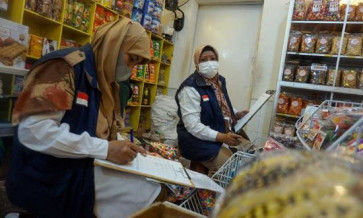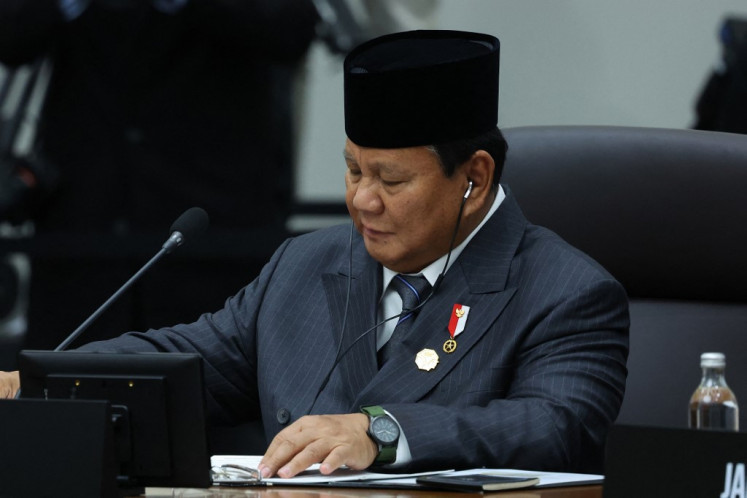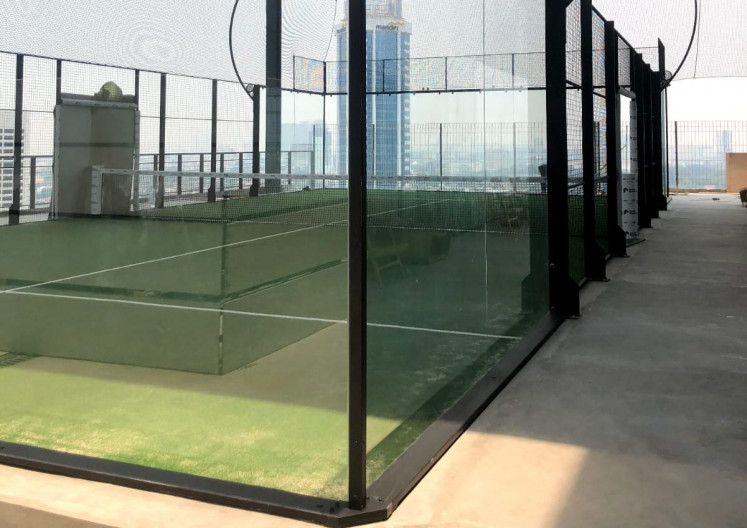Popular Reads
Top Results
Can't find what you're looking for?
View all search resultsPopular Reads
Top Results
Can't find what you're looking for?
View all search resultsiPad case and the issue of manuals
Recently the police arrested two alumni of the Bandung Institute of Technology who had tried to sell iPad tablet PCs without users’ manual in Indonesian on an online marketplace
Change text size
Gift Premium Articles
to Anyone
R
ecently the police arrested two alumni of the Bandung Institute of Technology who had tried to sell iPad tablet PCs without users’ manual in Indonesian on an online marketplace. Many say the police went over the top in this case, but since the case has already reached the judicial system, it is best to let the courts decide.
However, given the fact that consumers of the gadget typically are well-educated and technologically literate, what harm can it do for such Indonesians to buy iPads that do not come with Indonesian manuals?
This can be easily answered if we consider that a brand-new imported iPad — that does not have an Indonesian manual — being sold in Indonesian indicates that the product has been obtained illegally, i.e. on the black market. But this is often not the case as many of the products are sold as secondhand or used ones.
As a black market product, the price of a gadget does not include import tax and duties. Therefore, they can be offered at lower prices, which in the long run may distort the market mechanism and harm the society. This violates article 10A and 10B of Law No. 17/2006 on Customs.
Black market products are typically not technically certified by the Communications and Information Ministry and offer no warranty. Therefore, selling the product is a crime as it violates articles 8 and 62 of Law No. 8/1999 on consumer protection and article 32 of Law No. 36/1999 on telecommunications.
In many countries users’ manual are often used as a non-tariff instrument to prevent the flooding of imported consumer goods. Thus the more such goods are available in the market, the more illegal imports or smuggling actually may happen.
Surprisingly, I did a short investigation and found the illicit products are widely offered on social media sites like Facebook. Indeed, the seller often claims to have plenty of stock, which indicates that they may be professional smugglers. Offline trading of the products can also be observed in several electronic shopping centers across Jakarta.
Therefore, the customs agency is also responsible for this as it is supposed to trace how the products were able to slip by customs. In this case, if the sellers fail to show the proper import declarations, or smuggled goods, then they should be punished according to the law. If the goods are no longer in the port area, the police should act equally on this issue if protecting the public’s right is the concern.
From the demand side, this phenomenon indicates that our people are getting more infatuated with high technology products but are very pragmatic in obtaining them as they cost a lot. Therefore, supply of the products at a more affordable price is pressing.
The government should consider this growing opportunity by encouraging and supporting local industries in this field as India has done through their iPad-like touch-screen laptop project.
We should imagine that in the near future, students and employees may no longer bring their books and documents, but their iPad-like devices. Therefore, we cannot just let over 200 million people in the country work with hand-held gadgets from overseas.
We should learn from Japan’s industrial policy that successfully encourages local electronics manufactures to produce local handsets. The local industry collaborates with the network service provider to bundle the cellular service with the local handsets there.
In a recent visit to the headquarters of the biggest telecom company in Japan, I found how visionary they are with the cellular technology. They show us how their handset industry evolves from the simplest devices to the most sophisticated, all of which incorporate local culture and values. They do not only produce special devices for kids, but also for the elderly and the disabled to realize technology for all.
In this case, profit is not the only motivation, but coping with technology advancement is the concern. By doing so, the country has technological independence, at least, in the field of telecommunications which has not been the case at the Transportation Industry, especially car industries. This is particularly critical if we would consider that telecommunication and transportation is key to sustaining an archipelagic country like Indonesia.
In short, we need a strong industrial policy in this field. This can start by making our country suitable as a home base for the advanced telecom industry.
But more importantly this should also include collaboration between universities and industries so that we can offer more opportunities to our university graduates to produce rather than import products.
The writer is a PhD candidate at the Technology Management and Economics School at Chalmers University of Technology, Sweden, and works for the Indonesian Finance Ministry.










